New Realizations: An Interview with Hae Ri

Hae Ri escaped from North Korea out of fear that she would be sent to a political prison camp for watching South Korean TV shows after it happened to her friend's family. After arriving in China, she connected with our networks and made the journey to safety in South Korea. Today she is successfully resettled and has been working toward her goals. She is currently studying to be a nurse and took part in our English Teaching & Cultural Exchange Program.
Anna, one of our resettlement assistance coordinators, recently met up with Hae Ri to learn more about her life in North Korea and how she is doing now. Read the interview below:
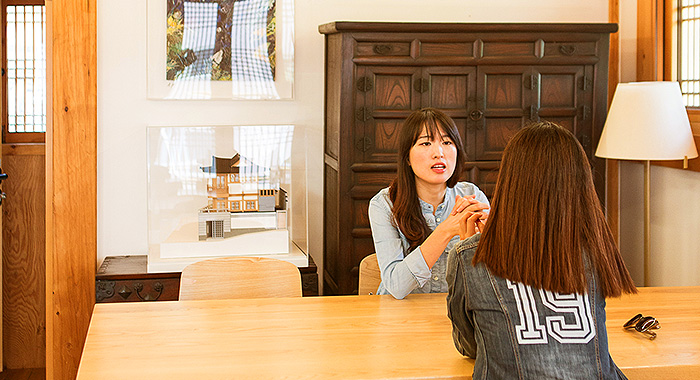
Anna: Did you want to move to South Korea?
Hae Ri: After graduating from high school, I learned a lot of things about South Korea through CDs and DVDs and the stories from my mom and dad after their trips to China.
The crackdown on CDs and DVDs were not that harsh until I entered 4th grade. It wasn’t a sudden change, but a gradual one. When more people have access to CDs, you notice the change in their awareness.
When I saw the world outside of North Korea in those CDs and DVDs, I was amazed and I hoped I could see it before I died.
I couldn’t believe I was actually in South Korea when I got here because it felt like a dream. I often wished to go to South Korea during middle school whenever I watched foreign films at my friend’s house.
Funny thing is, officers and the elite are the ones who have easy access to these things. My friend's father’s job was security related, so I was able to watch many dramas at her house. One day her house was searched and her parents were sent away, so she stayed at our other friend's house. She could not keep herself from watching “Stairway to Heaven” though, so me, my friend, and my friend’s aunt all watched it too. She was eventually caught.
In a political prison camp, you are not treated as a human being and are beaten over and over. People were called in one by one, and this made me worried. If you come from a powerful family or have connections, you may be able to get yourself out of there, but that did not apply to me. If I went there, there was no way out and I would be blamed for everything. That made me determined to leave North Korea as soon as I could.
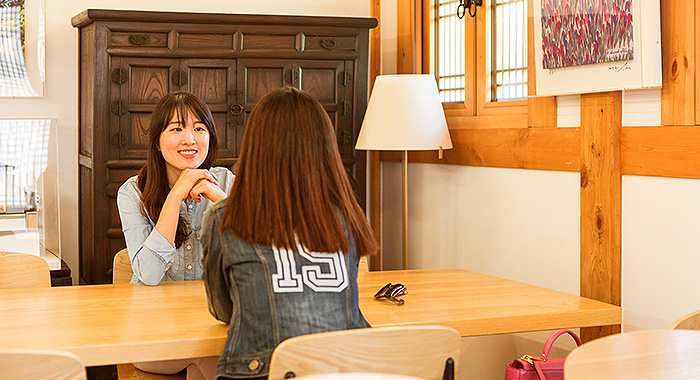
Anna: What would you like to tell to your friends who watched films together in North Korea?
Hae Ri: We shared everything when we were at school because we were the closest friends, but now I am the only one who is living in this place we all dreamed of going to. It is frustrating that I don’t know how they are doing while I am living my dream.
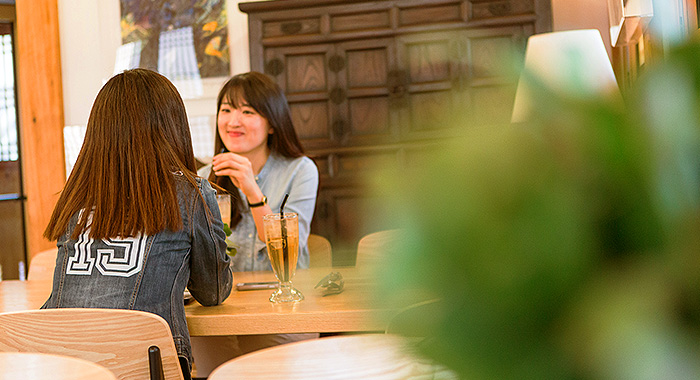
Anna: Do you think about your hometown a lot?
Hae Ri: I imagine what it is like there now. When I talk to my uncle over the phone, it hurts me to hear that people are having a hard time finding food every day. I also miss my friends. It would be great to reunite with them.
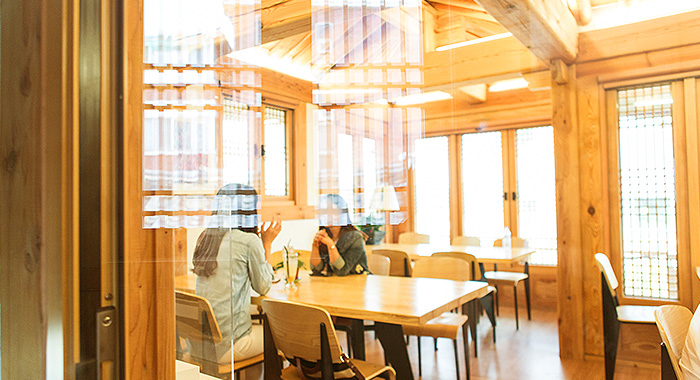
Anna: What is the first thing you want to do with your friends?
Hae Ri: I want to travel. I was told that Jeju Island is beautiful, and I would like to visit with my friends. That is what motivates me to do well until they can join me. I am sorry that I couldn’t even say goodbye to my best friend. It would be wonderful to see my friends again and enjoy this freedom together.
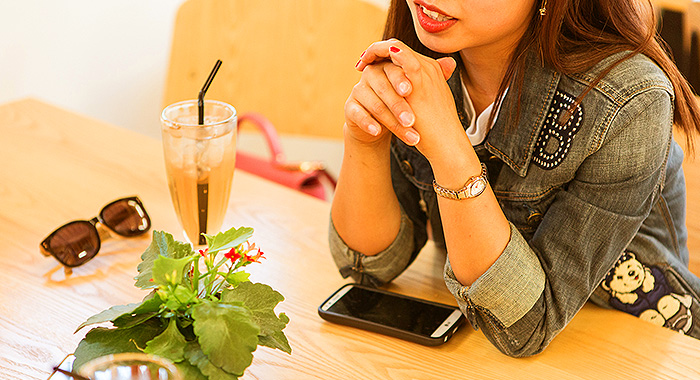
Anna: What is the biggest difference between North and South Korea?
Hae Ri: There are just too many to list and more differences than commonalities. Because there was no freedom in North Korea, after I finished school there, I didn't work. Even though I learned skills, there was no place to use them. I didn’t have any specific plans for what I should do or hopes for the future. I felt powerless, thinking that there was going to be nothing to receive in return for my hard work.
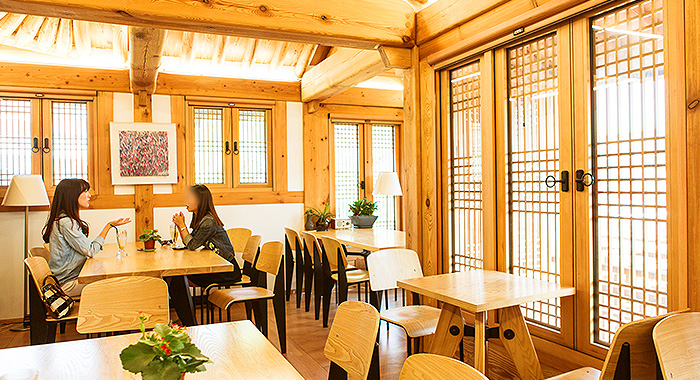
Anna: What have you achieved since your resettlement in South Korea?
Hae Ri: Being a nurse was one of the best jobs for women in North Korea. There was a school for that, but it's usually for people who have enough money for the tuition, which I couldn’t afford. Even if you went there, studying might not be your priority because people just need their degree and just need to know how to use a needle to work. Of course, I wanted to go there.
It was still hard for me to decide to study once I came to South Korea, but then a friend from church suggested that I should begin studying since I am still very young. I thought I really would achieve nothing if I continue to live like this. So now I am preparing for college, and I already passed the test to become a nursing assistant.
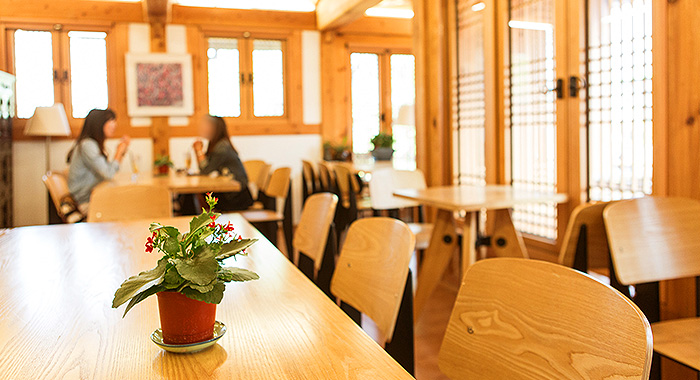
Anna: What was it like to hear that you were accepted?
Hae Ri: Well, I did feel a sense of accomplishment, but at the same time, it felt like a beginning for something new. I wasn’t satisfied to have the story end there. But you know, they say a journey of thousand miles begins with the first step. I just made my first step, and I need to continue moving forward. It’s also important that I don’t rush things too fast and work on one thing at a time, since I am new to a lot of things and there is a lot left to learn.
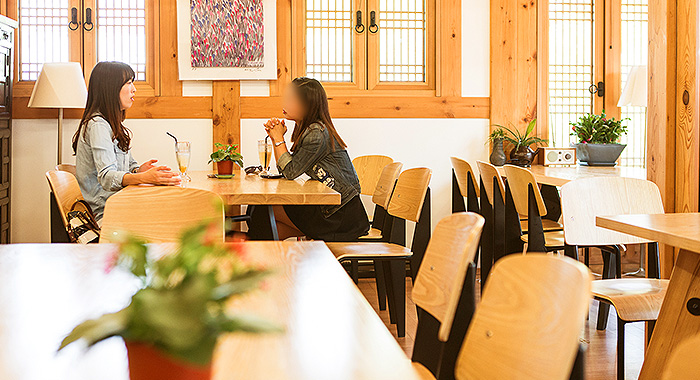
Anna: What was the first thing you tried after your resettlement?
Hae Ri: The first thing I wanted to eat was samgyeopsal (grilled pork). Back when I was in North Korea, I couldn’t afford to eat this so I would just eat fried vegetables. I only saw this through Korean dramas. In South Korea, you have a variety of foods to choose from, like pizza and hamburgers. My grandmother, who worked at Kaesong Industrial Complex, came back with a Coke one day. There was a picture on the bottle that looked like some kind of bread I didn't recognize—it was actually a picture of a hamburger! I didn’t like the taste of hamburger at first, but now I love it!
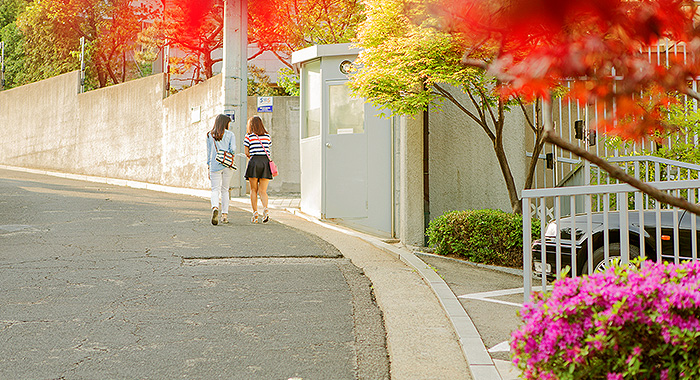
Anna: Did you visit your grandmother? Wasn’t Kaesong Industrial Complex far from where you lived?
Hae Ri: It took me two days to get to Kaesong. It was an arduous journey. I would go there once every three to four years by train. There is no express line to Kaesong, so the train would stop at several stations, and I had to wait for several hours at the station just standing or lying on the ground because there weren’t enough seats.
In North Korea, you need a certificate to move to different places, which is especially difficult for Kaesong because there is a lot of exchange going on there with South Korea. So one day, I walked for a full day to Kaesong. While I was climbing a mountain to get there, I came across the military. The military personnel asked where I was going and why I was going to Kaesong. Then you have to give all the food and everything you have in your bag so they will let you go. When I first came to South Korea, I wondered if South Korea is a lot smaller than North Korea because it only takes three hours to get almost anywhere here. It would take two days in North Korea to get to a place you can go within three hours in South Korea. Not only the transportation is bad, but there is always the risk of getting caught while you are on the move.
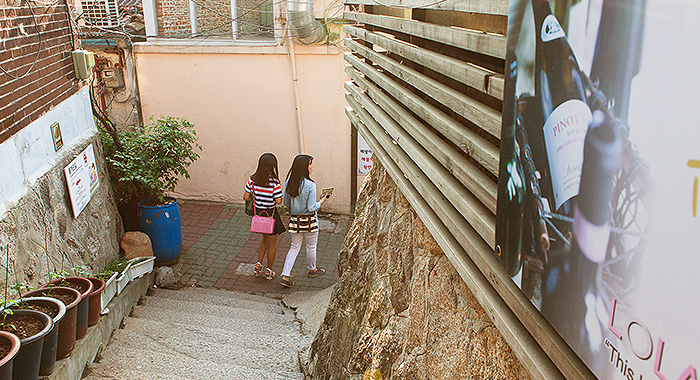
Anna: What was difficult when you got to South Korea?
Hae Ri: My accent. I hated to hear that no one would take me for a part-time worker because I am from North Korea. I hated myself for being born in North Korea, and I thought people were staring at me because I was weird. This made me think more about the reasons for others to keep a distance from me. Changing my accent was difficult.Studying was a big challenge as well. Back in North Korea, I didn’t have much hope for achieving anything because of my family background. My accent is a challenge for daily living, but learning how to study was the most difficult challenge for fulfilling my dream.
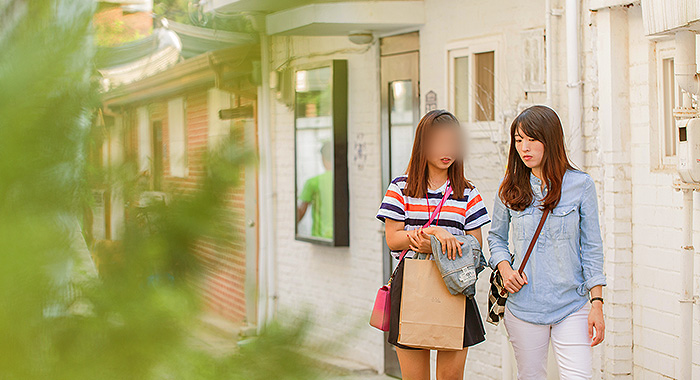
Anna: What were your first experiences with the outside world?
Hae Ri: At home, no one really had sincere respect for Kim Jong-il or Kim Jong-un. Watching the things about Kim Jong-un, I thought it was ridiculous that people actually cried for the leader. However, I was shocked to realize the truth about the Kim family. I thought Kim Jong-un lived a very modest life until I was in Hanawon and learned that he spends so much on living a luxurious life, which could instead be spent saving so many people who are starving. I watched the Korean film called, “When the Azalea Blooms” when I was in China. The film was about Kim Jong-il, and that film also opened my eyes and made me realize what was actually going on.

Anna: What did you think when you first watched the film?
Hae Ri: I didn’t believe it at first, but when I watched it again, things became clear. There is a huge difference between knowing the truth and not knowing it. I want more people to hear the message and share what I realized. People get lost in their daily lives without thinking about their dreams.
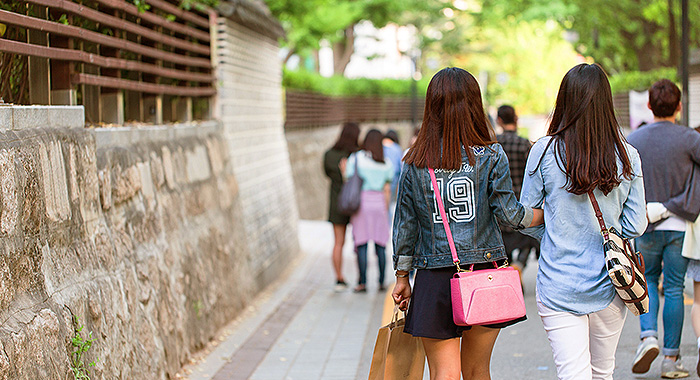
Anna: Is there any message you want to give to your friends?
Hae Ri: I believe unification will take place in the future, so I have to resettle here successfully so I can be an example for my friends later on and lead them. That keeps me working hard even when things are tough. That’s what my mom thinks too. I need to prove that my decision was right and that I can do well here. I always wish the best for my friends in North Korea. When I think about my future, I am always thinking of ways to help North Koreans, and ways to return the help I received from LiNK to society.
It is just a dream for now, but I would like to do something meaningful, like sending aid materials to support North Korea.
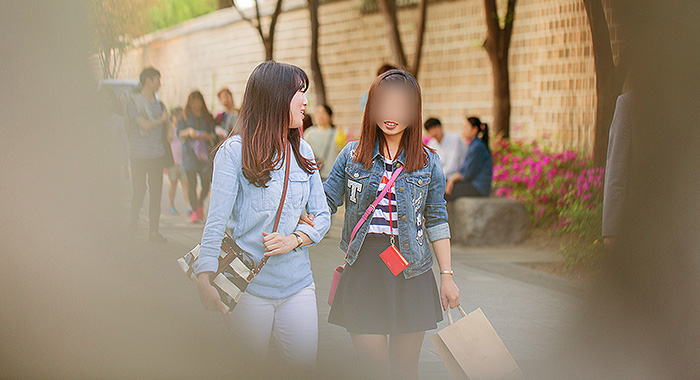
We are only able to provide crucial support for North Koreans like Hae Ri with your help!
A North Korean Father Risks Everything for Family | Doohyun’s Story
I lived in North Korea for over 20 years, and for much of that time, I believed my life was normal. I grew up in a big city by the river. When the wind blew, I could smell the water on the breeze, and on holidays, I played along the banks with my friends.
The river ran along the border between North Korea and China. I could see across the water into a different world–one where cars lined the streets, and buildings stretched high into the sky.
But I didn’t realize that life should be different, until the day they took my father away.
My father was a great businessman. He provided for our family despite being forcibly discharged from the military when his Minister of Defense was executed by Kim Il Sung. Labeled as a “traitor,” he was banned from decent jobs and opportunities.
Still, my father was a clever man and found success within the private market system that many North Koreans rely on to survive. Until one day, the police came to investigate him.

Without reason or warning, my father was arrested and imprisoned. They tortured him for a year. When he was released, my father weighed only 66 pounds.
Even after surviving the unimaginable, he was defiant. He wrote 20 pages of complaints to the Central Party about the human rights abuses he endured. My family was terrified of the consequences, but we couldn’t stop him. He fought for his voice to be heard.
On a warm Spring day, a Mercedes-Benz, license plate number 216, arrived at our home. February 16th was Kim Jong Il’s birthday, and cars with this number were only given to his closest aides. My father spoke with the man for hours about his letter. The man apologized and promised something like this wouldn’t happen again. This gave us a bit of hope for the future – for the possibility of change.

But the man left for Pyongyang. And then the police returned. I never saw my father again.
For two years, my family and I lived in unknowing agony, receiving no news on my father. Eventually, we heard from my father’s friend, who was a police officer, that he had passed away in prison.
At the very least, we wanted to send him off properly, so we asked that same friend how we could get my father’s body. Three days later, he returned. He told us they would not return my father’s body. My father had been sentenced to eight years in prison. He’d passed away after two. He still had six more years to serve – as a dead body. As a corpse.
For the first time I wondered whether this was the way normal people lived.

In 2009 I decided to escape from North Korea. Life had become near impossible for me after my father’s death, and I continued to face discrimination due to our family’s status in society.
By then, I had been married to my wife, Jiyeon, for two years. Most of our relationship before marriage was through the phone, because we lived far apart, and traveling in North Korea is difficult. So we called each other every night and talked for hours.
Now, I didn’t know if I was going somewhere she would never be able to reach. I told her it was a business trip. Two weeks. I’ll just be gone for two weeks.
She still cried at the train station, thinking about those two weeks. I couldn’t cry with her because then she would know the truth. So I boarded the train without a word, and watched it take me away from her.

From the moment I escaped North Korea, it felt like I was being chased by a grim reaper. There were multiple close-calls where I felt death breathing down my neck.
I was once hiding in a corn field near the Chinese border. Lying on my stomach, I watched soldiers patrol the area when suddenly, one of them walked towards me. It was too late to run or hide.
I had brought poison with me in case something like this happened - I knew it would be better to kill myself rather than be captured. But as I prepared to take the poison, I thought of my wife. I thought about how she would never know what happened to me.
In that moment of sheer terror, I heard the sound of water. The soldier stood right beside me but he hadn’t seen me. He had only walked over to relieve himself. For the next few minutes, I couldn’t move. The soldier had left, but my body held onto the terror of that moment. I remained hunched and hurried for the rest of the journey.

Eventually, I made it safely to South Korea. I started working as soon as possible – 12 hour days to pay back the broker fee, and save up money for my wife’s escape. My schedule was just working and sleeping, working and sleeping. It was hard, but for the first time in a long time, I had hope.
I was able to find a broker who put me in contact with my wife. It had been ten months since I’d defected at that point – ten months of her not knowing whether I was dead or alive. The call couldn’t be made in the city because the signal could be intercepted, so my wife and the broker hiked to the top of a mountain.
| When we heard each other’s voices again, all we could do was cry. But we didn’t have much time, and so I asked her, you’re coming, right?
She said she was.
On December 27th, 2011, Jiyeon crossed the river to escape North Korea on the same route that I took.

As soon as my wife arrived in South Korea, I went to meet her. I was so excited. I couldn’t stop crying. When my wife came into the room, she was crying too – but do you know what’s the first thing she did when she saw me?
She punched me – crying, calling me a liar. And I deserved it.
We live in Utah now with our two beautiful sons. We go fishing, camping, and enjoy the outdoors together. Every time I see them, I realize I’m living in a different world, one where we can finally dream and decide our own future.
This is the life I’ve made for my children. This is the life my father envisioned for me and for all North Koreans when he made his act of defiance. My father died fighting for his voice to be heard – and now, finally, he’ll be heard by the world.

Doohyun risked everything to create a future where his family could live together in freedom. Their story isn’t unique - there are many more North Koreans waiting and hoping for the day when they can reunite with loved ones. Help make freedom part of every North Korean’s story.
Give today
Since resettling in the United States, Doohyun has completed his undergraduate studies and now works for a North Korean human rights organization. He considers helping the North Korean people to be his life’s mission, continuing his father’s legacy.




